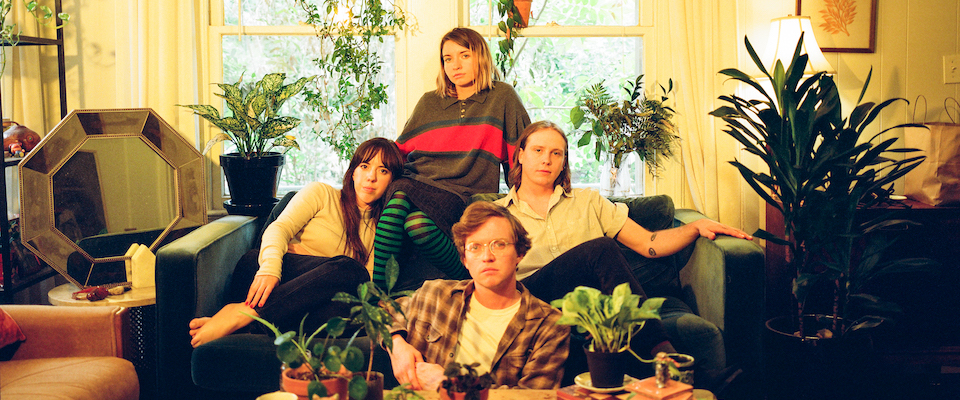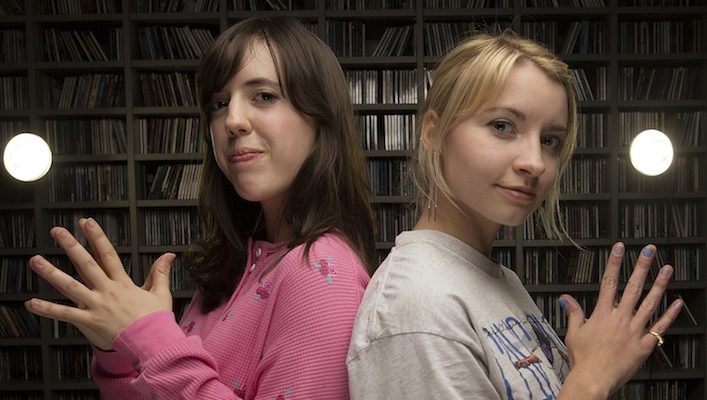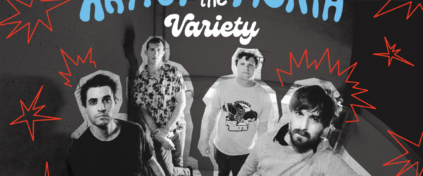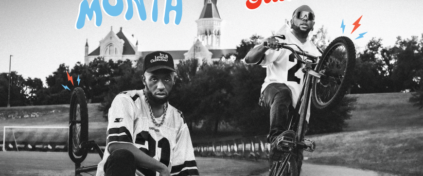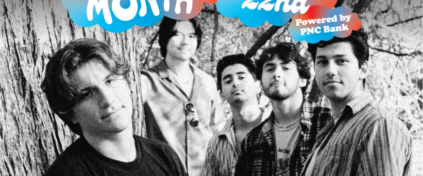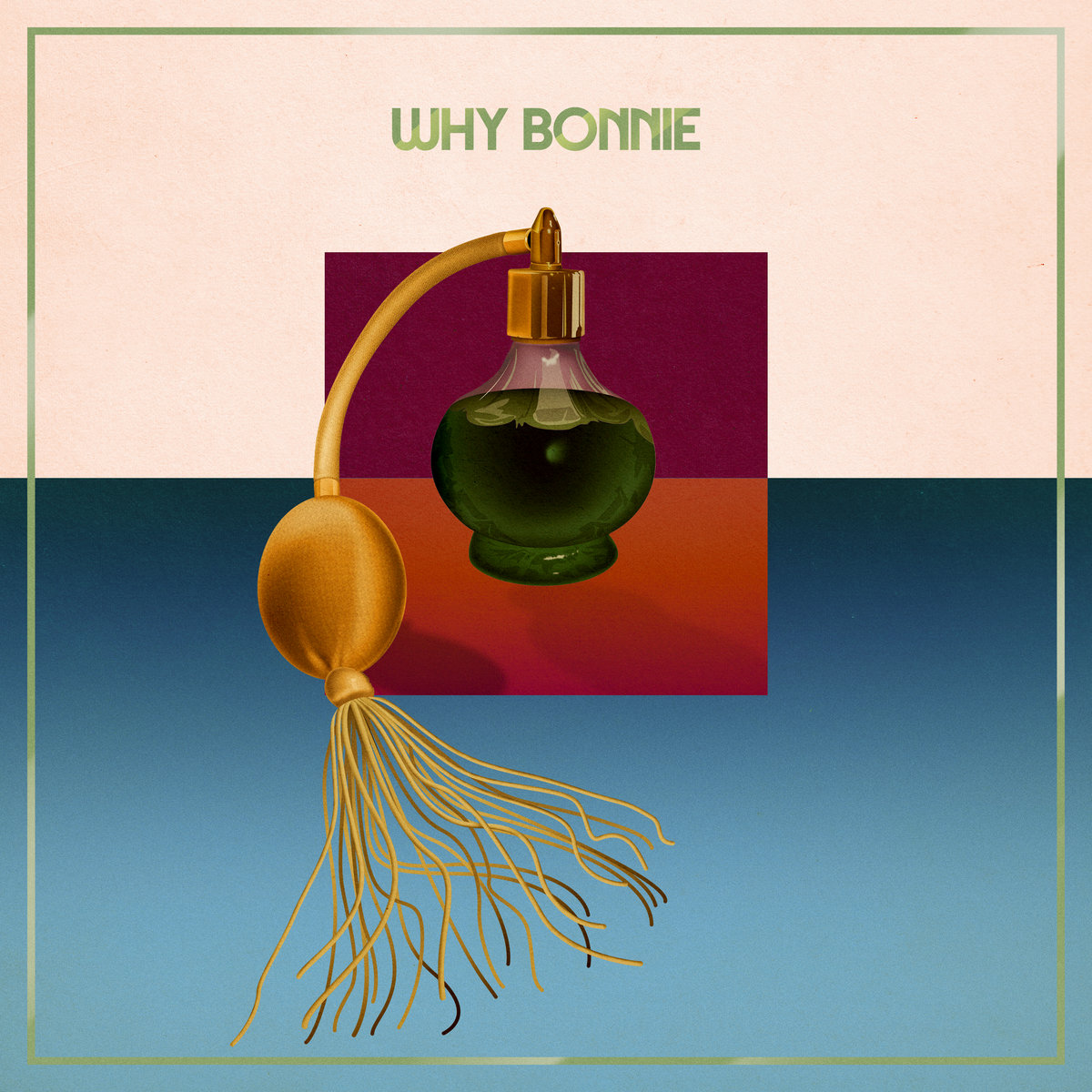
Austin bedroom pop quartet Why Bonnie explores the disjointed feelings between our inner and outer selves, alternating between light buoyancy and hazy intensity. Half a decade ago, vocalist Blair Howerton moved back to Texas after graduating college and started the Why Bonnie project as a way to work through her years of unheard material. She found an easy collaborator in childhood friend Kendall Powell, who traded her classical piano training for new synth magic. Soon, guitarist Sam Houdek and bassist Chance Williams joined the line-up, and the group’s first two EPs showed off a penchant for fuzzy guitar pop with synth flourishes.
After signing to Fat Possum Records earlier this year, the band put out Voice Box, a shimmering five-song EP that bristles with new fervency while maintaining the intimacy of their earlier work. Cranked out guitars, warm distortion and Howerton’s lilting Mazzy Star-esque vocals make up the tracks — there’s more than a fair touch of ’90s alt rock throughout, calling upon The Cranberries and The Breeders. “Athlete,” a simmering gem about self-doubt, pushes and pulls between restrained calm and clashing barrages of noise. “Wish I was good on my feet / But you don’t want me on your team,” Howerton sings. By the song’s conclusion, you want her as your starting player.
— Annie Lyons
BANDCAMP || INSTAGRAM || FACEBOOK || TWITTER
YOUTUBE/KUTX – Meet Why Bonnie produced by Julia Reihs
Why Bonnie’s Blair Howerton chatted with KUTX intern Annie over email about Voice Box, bedroom pop and life in isolation.
Annie: Over the past couple years, Why Bonnie’s started exploring more expansive soundscapes full of intense guitars and intricate layers. What’s been driving this progression in your sound?
Blair: I think our sound is always evolving, which is exciting to me. We like to play around with new styles, and try not to pigeon hole ourselves too much. We also just have a lot of fun together and like to bounce new ideas off one another. We felt there was room in the songs on Voice Box for bigger sounds so we decided to go for it. I also think we’re becoming more fluid players in general which has allowed us to explore a little more.
Annie: Can you explain more of the inspiration behind Voice Box?
Blair: The songs each have their own inspiration; some are pretty classic break-up songs, some are about societal pressure. It’s more of a collection than a concept album. But the songs were all written during a time when I was shaking up my identity. I was learning how to speak up and was realizing that people didn’t always like that. The songs are all kind of anchored in frustration but have enough airiness to make them feel breezy.
Annie: Much of Voice Box deals with feelings of isolation and uncertainty. Have these songs taken on new meaning given our current state? How have you tried to stay creative during the pandemic?
Blair: Since most of these songs were written a while ago, when I listen back to them it feels like a time capsule. It’s always cool to hear an old lyric and realize that it has new meaning to you now. There are a few lines from Voice Box that do that for me. And with all of this down time, it’s definitely easy to reflect back. But being stuck inside has definitely given us more time and space to be creative. We’ve all been writing a lot on our own since we can’t play together at the moment but we’re actually getting into the studio soon. Very excited to record new material.

Annie: A lot of artists seem to have a love/hate relationship with the term “bedroom pop.” What are your feelings on the label?
Blair: “Bedroom pop” doesn’t bother me! Some of my favorite bands are considered bedroom pop. Also, our sound is bound to change a little bit so we could be bedroom pop today and deep tech tomorrow. Just kidding, we won’t be…?
Annie: Lastly, y’all have recently contributed demos to a few benefit compilations and done some livestream benefit concerts too. What makes these projects, and the music community behind them, important to you?
Blair: Donating and supporting is just a small way we can stay engaged. I think we should all be actively participating in the Black Lives Matter movement whether that’s by donating, organizing, educating, etc. Stay connected with your local community, support others, and be kind.
